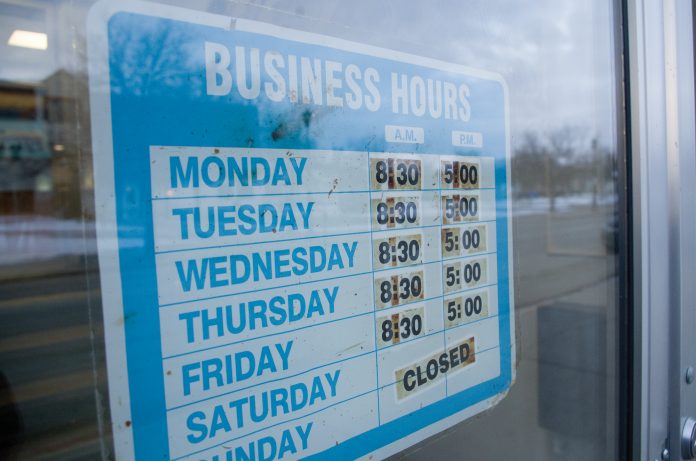The Better Business Bureau has released its list of the top ten scams of 2018.
The list, compiled annually, uses information from the BBB Scam Tracker, highlighting concerns from Canadians, as well as input from the ten BBBs in the country and the Canadian Anti-Fraud Centre.
In 2018, there were three new scams to hit the top ten, as well as one scam that has evolved and extended its impact to earn the number one spot.
That would be the romance scam, where targets are catfished through online dating sites before being victimized financially, emotionally and socially. Overall, Canadians lost more than $22.5 million through this type of scam in 2018.
To avoid falling victim to the scam, the BB advises people to never wire or transfer money to someone they have not met.
“Look out for sob stories, plans to visit the country to meet you and tales about family emergencies,” they said on their website.
The BBB also advises people to not share personal information like their home address or phone number on dating sites and to be wary of people who say that they are out of the country or can never meet with you in person.
The other scams that round out the top ten are:
Income tax extortion scams (when people pretend to be the CRA to steal money from a victim)
Online purchase scams (from fake websites and free trial traps to counterfeit goods or fraudulent cheques from people buying online)
Employment scam (where scammers send cheques with an overpayment and request you forward the excess to someone else)
Phishing (fake invoices, online endorsements and wire fraud, using fake emails and websites created to deceive)
Subscription scams (online advertisements and pop-ups promoting things like skincare and cosmetics, or weight loss and diet pills. People have been enticed by the prospect of a risk-free trial, but end up trapped with large monthly charges to their credit card)
Advance fee loans (it is illegal to request an upfront fee to secure a loan in Canada)
Tech support scams (pretending to be computer techs from well-known companies, will ask to get remote computer access and will then diagnose a non-existent problem and ask you to pay for unnecessary or harmful services)
Home improvement scams (Door-to-door solicitors offer quick, low-cost repairs and then take payments without returning, do shoddy work, leave incomplete projects or create issues that dramatically increase the cost of the job. One common hook is when the scammer claims to be working in your neighbourhood on another project and has leftover supplies)
Bank investigator scams (It starts with an early morning phone call from someone claiming to be a bank representative, law enforcement officer or an investigator and they tell you that there is fraudulent activity on your account. They may ask for your credit card details to cancel the transaction. Other times, the victim is told to call the number on the back of the card, but the caller does not disconnect the call. The victim is operating in a panic and does not realize they are still speaking to the scammer. In some instances, the victim may even be asked to transfer funds to another account for protection until the investigation is over or accept a deposit to later transfer it to another account. However, the deposit is not real, and victims transfer their own money to scammers.)
In 2018, Canadians lost over $121 million to scammers, up from $95 million the year prior, and more than double the amount from 2015.
Some of these scams are present in the Prince Albert area. According to data from the BBB scam tracker, there were four scams reported in the Prince Albert area since Jan. 1 of last year and three more in Melfort.
According to the tracker, one area resident lost $100 in a tech support scam.
Other scams reported nearby include cryptocurrency scams using fake emails, a credit card scam and a Yellow Pages scam.
A Melfort resident lost $1,000 in a credit relief scam, where the resident was told to pay $1,000 up front to receive a loan, but the loan never arrived. A similar scam took another Saskatchewan resident for $8,000.
“While the losses continue to trend upwards, the percentage of victims that actually come forward to report the crime is still less than 10%, suggesting that actual losses are somewhere in the range of $3 billion dollars,” the BBB said.
“In the past, people believed scammers only targeted seniors, however, the statistics are telling a different story’, says Danielle Primrose, President and CEO of Better Business Bureau (BBB) serving Mainland BC and representative for BBBs across Canada. “Scams are evolving – they are more aggressive, devastating, convincing and there is now a scam for everyone. Scammers are bolder than ever, which is why we need to keep informed and take proactive steps to protect our information and finances. I cannot stress enough how important it is to report every instance of scams and frauds”.
In addition to reporting the scam to the BBB scam tracker, anyone who has lost money due to a scam should call their local police. Scams can also be reported to the Canadian Anti-Fraud Centre online or by calling 1-888-495-8501.


